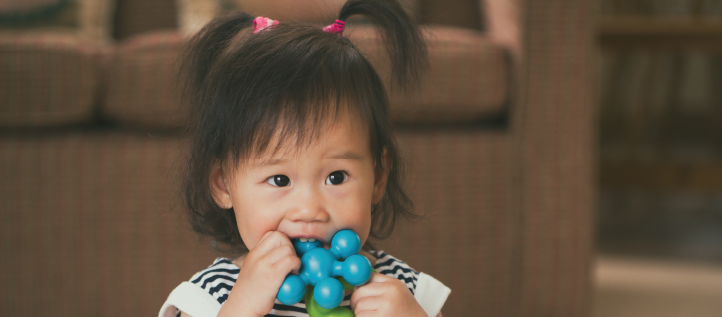How to Prevent Bottle Rot

Updated 1.11.2021
Also known as baby bottle tooth decay, bottle rot is a serious problem that can affect the teeth of a baby or a toddler. Put simply, it’s the formation of cavities in a baby’s teeth.
Sure, your child will eventually lose all of those baby teeth and replace them with adult teeth, but those temporary chompers are necessary not only for proper chewing and speaking, but also to help ensure the permanent teeth will grow in beautifully. So check out the information below to learn more about the causes of bottle rot and what steps you can take to prevent it.
Before Prevention, Let’s Cover Causes
To better understand how you can go about avoiding bottle rot, you need to know about what contributes to its development in the first place.
One mistake that parents make is using a baby bottle filled with a sweet drink as a sort of pacifier to keep a child calm and happy. Another mistake involves putting their baby to bed with a bottle, which essentially has the same effect. Basically, doing either one of these things could expose your little one’s delicate teeth to sugar for an extended period of time.
What’s the problem here? You probably already guessed it—when teeth are exposed to sugar frequently and for too long, the risk of decay increases. It’s why you make it a point to brush your teeth after you’ve had a sugary drink and before you head to bed.
Simple Steps Can Help Prevent Bottle Rot!
Preventing bottle rot is probably a lot easier than you might imagine. Here are a few steps that you can take every day to help keep your baby’s teeth healthy, strong, and clean:
- Establish a brushing routine early on. You can simply wipe your baby’s gums gently using a washcloth after every meal and before bed. Then, once your baby has teeth, using a toothbrush designed for babies and a rice-sized amount of toothpaste should do the trick. This not only helps to establish a healthy habit but also serves to remove bacteria and debris that would otherwise cause problems if left on those tiny teeth.
- Ensure your baby finishes drinking from a bottle before naptime or bedtime, rather than giving it to your child in bed. It’s also a good idea to prevent your baby from keeping a bottle in his or her mouth for too long during the day as well. However, if the bottle is necessary, just fill it with pure water. That way, if your baby falls asleep with the comfort of the bottle, the water won’t contribute to tooth decay.
- Fill your baby’s bottle with formula, breast milk, or water, rather than soft drinks, juices, or sugar water. Once your child is ready to graduate to a sippy cup, you can add juice, and you could even dilute the juice with water to avoid excess sugar. Doing so may help encourage your toddler to transition from the bottle to the cup.
- Avoid dipping a pacifier into honey or sugar, and limit the sugary beverages that your little one drinks. Both of these habits would end up exposing your baby’s teeth and gums to too much sugar, and you don’t want that.
- Sterilize your baby’s bottle regularly. This will help thoroughly clean the bottle and remove any bacteria that might be hanging around. As an example, you could wash the bottle with soap and water in between uses, and then sterilize it once a week in an effort to keep bacteria at bay.
Having Trouble Breaking Bad Habits?
Even babies can develop bad habits that can be hard to break, but it isn’t impossible to get back on track. If your baby gives you a hard time when you try to take the bottle away, such as before a nap, you can still reduce the risk of bottle rot by diluting the sweet drinks gradually with some water. Genius!
Diluting your child’s drink over the course of two to three weeks could help establish new habits and preferences. Before you know it, you’ll be able to fill the bottle with water and give that to your bundle of joy instead, and you’ll both be able to rest easy.
Yes, Your Baby Can See the Dentist!
Did you know that you could start taking your baby to the dentist when you notice the first tooth erupting, or by the time your son or daughter turns one year old? These checkups are the perfect opportunity to talk about the health of your baby’s teeth, as well as steps that you can take to avoid problems like bottle rot. Plus, you can even discuss options like sealant coatings that are used as a preventative measure against tooth decay.
Bottle rot doesn’t have to be a problem that you encounter while raising your baby. With some simple strategies, your child’s teeth will grow in perfectly and remain clean and strong.
